Slideshow: A Visual Guide to Understanding Eating Disorders

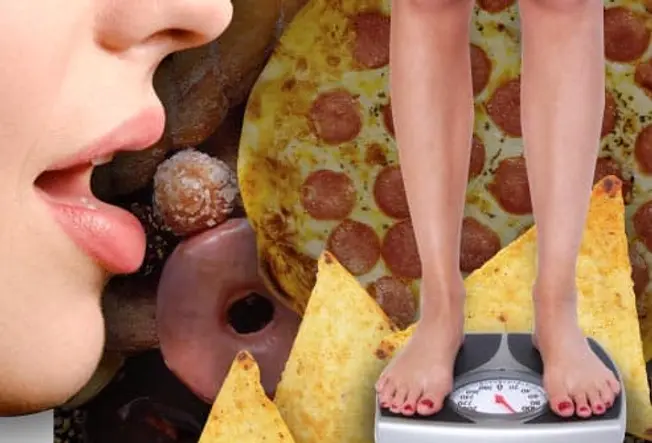
What Is an Eating Disorder?
An eating disorder is an illness that leads people to overeat, starve themselves, or adopt other unhealthy behaviors surrounding food and body weight. These disorders -- binge eating, anorexia nervosa, and bulimia -- are not simply bad habits. They interfere with daily life and without proper treatment they can cause serious health problems.

What Is Binge Eating Disorder?
Episodes of extreme overeating are the hallmark of this illness, which is the most common eating disorder. People who struggle with it are usually overweight or obese -- male or female. In contrast with bulimia, this illness does not lead people to purge (vomit), fast, or over-exercise. It can develop at any age but is often diagnosed in middle age. It can lead to type 2 diabetes, high blood pressure, and heart disease.
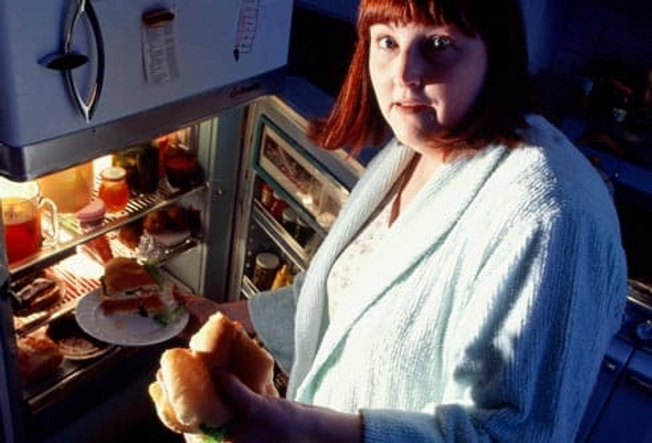
Binge Eating Symptoms
Many of us overeat from time to time; binge eating is different. People describe feeling out of control when they overeat. They may eat more quickly than usual during a binge. They may eat until they are painfully full, or binge when they aren't hungry. Many people with binge eating disorder say that stress, anxiety, depression, or boredom can trigger a binge.

Binge Eating Symptom: Guilt
It's common for someone with binge eating disorder to feel guilty, ashamed, or depressed after a binge. This can lead to a vicious cycle in which bingeing causes emotional distress, and then emotional distress causes more bingeing. Guilt and shame cause many people with binge eating disorder to hide the behavior, which can make it harder to diagnose.
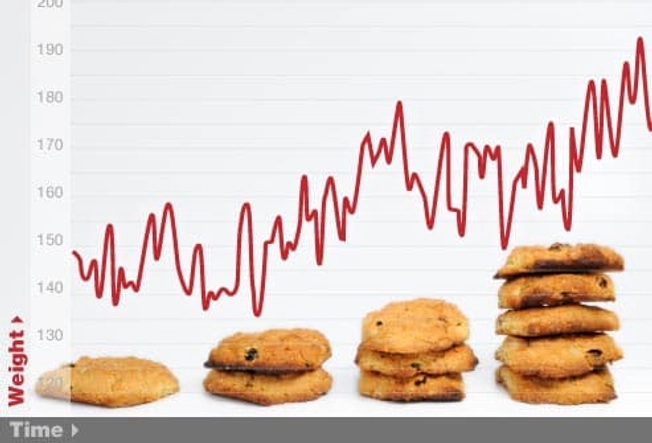
Binge Eating Symptom: Weight Change
It's not uncommon for someone with binge eating disorder to have weight fluctuations because of attempts to diet between bingeing episodes. But until the bingeing behavior is under control, weight loss efforts are unlikely to be successful in the long term.

Diagnosing Binge Eating Disorder
Most binge eaters hide their overeating, even from close family members, so getting a diagnosis can be difficult. One sign is a history of bingeing at least once weekly for the last 3 months. Diagnosis may also include a physical exam and a discussion of eating patterns, medical history, and family history.

Treating Binge Eating Disorder
Successful treatment may come from a combination of approaches. Talking with a therapist -- particularly cognitive behavioral therapy -- can help to change unhealthy eating habits and thinking patterns. Nutrition education, family counseling, and support groups can provide further help. Weight loss programs can also help get long-term control over binge eating. If depression is an issue, your doctor may prescribe an anti-depressant medication.

What Is Anorexia?
People with anorexia nervosa develop an irrational fear of gaining weight, which can drive them to become dangerously thin. It's more common in women and girls, but it affects boys and men, too. It can start after a life change, traumatic event, or the desire to excel in sports such as gymnastics or cross-country running. Anorexia is a serious health problem, but with support and the right treatments people can and do get better.

Anorexia Symptom: Rapid Weight Loss
People with anorexia go to great lengths to lose weight. Besides eating too little food, they may compulsively exercise, or take diet pills. Taking pills to urinate (diuretics) or have a bowel movement (laxatives) are other unhealthy strategies to keep weight down. People may continue to lose, despite symptoms of starvation -- and hide a rail-thin body in baggy clothes.

Anorexia Symptom: Food Obsession
Food becomes an obsession in anorexia. People may eat very little, but think about food constantly. They may portion their food carefully, eat very small amounts of restricted foods, count calories, or weigh food before eating it. People with this illness may simply move food around the plate without actually eating anything.

Anorexia Symptom: False Body Image
Though people with anorexia may be dangerously thin, they still see themselves as fat. They are often extremely critical of themselves. Anorexia may in part develop out of perfectionism. But the drive to achieve a "perfect" body spirals out of control until it becomes unhealthy and even life-threatening.

Anorexia: Other Symptoms
Physical symptoms of anorexia can include:
- Brittle hair and nails
- Yellowing skin
- Fine hair growth all over the body
- Cold sensitivity
- Constipation
- Slow reactions or lethargy
- Loss of menstrual periods
Long-term problems can include anemia, thinning bones, damage to the heart, organ failure, and death.
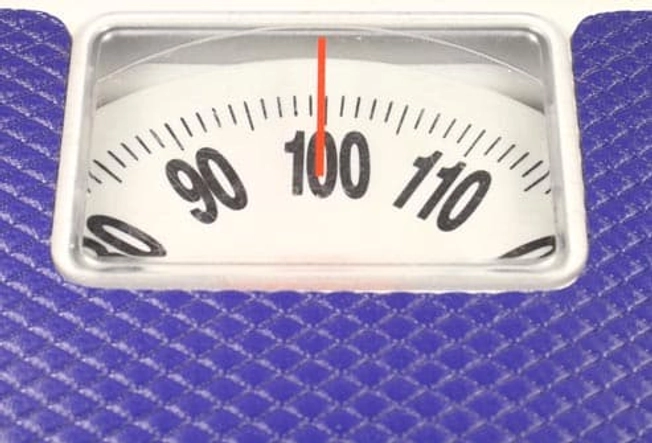
Diagnosing Anorexia
Because anorexia can be life-threatening, it's important to get a diagnosis as soon as possible. Generally, a diagnosis of anorexia can be made if a person is less than 85% of what is considered a normal weight, if they show an intense fear of gaining weight, and have a very distorted body image. A doctor may run tests to rule out other diseases before confirming a diagnosis of anorexia.

Suicide Warning Signs
People with anorexia may also be struggling with depression, anxiety, or substance abuse -- and may think about suicide. If you're having suicidal thoughts, or you're worried about a loved one, don't wait. Call 911, or the national suicide hotline: 800-273-TALK (800-273-8255). Warning signs include talking about death or suicide, withdrawing from friends or loved ones, or engaging in risky behavior.
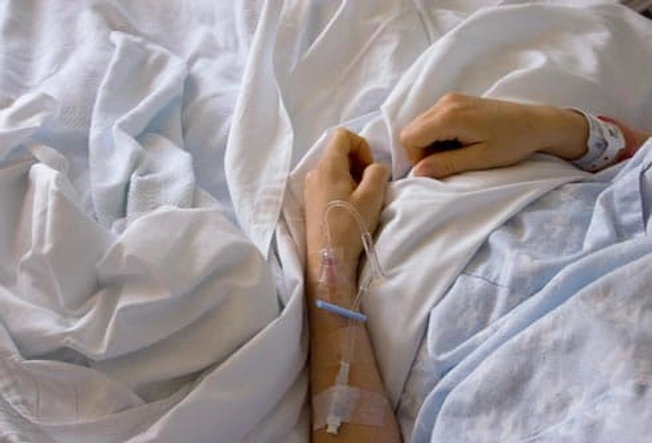
Treating Anorexia: Hospitalization
A stay in the hospital may be needed for people with serious health complications, dangerously low weight, or thoughts of harming themselves. Hospital stays are usually short. Outpatient programs are common, with people going to daytime appointments and staying at home at night. This approach is generally less disruptive to a person's daily life.

Treating Anorexia: Therapy
Anorexia treatment has three goals: restore a healthy weight, treat any psychological issues, and reduce unhealthy thoughts and actions that might lead to a relapse. Family therapy that includes parents is helpful for children and teens with anorexia. Treating anorexia in adults is trickier; therapy may be combined with additional treatments. With every approach, food and nutrition counseling is key.

Treating Anorexia: Medication
Antidepressants and other medications are often prescribed to treat underlying mood problems in people with anorexia. The results have been mixed: Some people get better on medication, while others may still relapse. Research has found that a combined approach -- medications and therapy -- works better than one treatment alone.

What Is Bulimia?
Bingeing and purging are the hallmarks of bulimia. Though anyone can get bulimia at any time, 85% to 90% of bulimics are female, and it often strikes in the teen and young adult years. Factors that play a role include stressful life events, biology, culture and habits within a family, and social pressures to be thin. The good news: Bulimia is not a life sentence. Treatment can stop the cycle of bingeing and purging.

Bulimia Symptom: Eating and Purging
A person with bulimia eats large amounts of food very quickly and then compensates by throwing up, taking pills to have a bowel movement (laxatives), or exercising excessively. Bingeing and purging can happen a few times a week or many times in a single day. People say they feel out of control when bingeing and they keep it secret out of shame.

Bulimia Symptom: Weight Obsession
Unlike anorexia, people with bulimia are usually at a normal weight or just slightly overweight. But they're deeply afraid of gaining weight. In the grip of the illness, those with normal body weight and size may believe they're actually terribly fat, called a distorted body image. The drive to lose weight can also lead people to abuse diet pills.

Bulimia Symptom: Depression
Bulimia is more than just a problem with food. For many people, the cycle of food binges and purging is an attempt to control negative feelings. It's common for people with bulimia to struggle with depression, anxiety, or substance abuse. Someone with bulimia may be moody or irritable and may withdraw from friends and family.
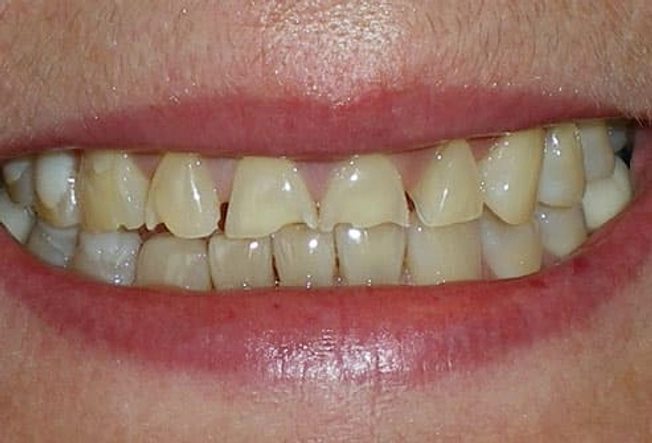
Bulimia: Other Symptoms
The physical effects of bulimia can include:
- A chronic sore throat
- Worn tooth enamel
- Swollen salivary glands in the cheeks
- Heartburn
- Constipation and other digestive problems
- Dehydration
- Irregular periods
- Out-of-balance blood minerals (electrolytes)
An imbalance of electrolytes can lead to heart problems.

Diagnosing Bulimia
To diagnose bulimia, a doctor will ask about a history of bingeing and purging. Many people deny and hide these behaviors, which can make it tough to get a diagnosis and proper treatment. If you suspect bulimia, talk to a health care professional. The earlier a person gets treatment for bulimia, the more likely they are to recover completely.

Talk and Support
If you think a loved one is struggling with an eating disorder, don't hesitate to talk about it. Do voice your concerns respectfully, avoiding guilt or blame. Focus on the specific behaviors that worry you, and encourage the person to get help. Though you can't force a person to change, you can let them know that they have your support.

Treating Bulimia
Treatment for bulimia is most successful when a combination of therapies are tailored to the individual. Nutritional counseling and therapy can help the person establish healthy eating habits and develop a better relationship with food and eating. Fluoxetine is FDA-approved to treat the symptoms of bulimia. Certain other antidepressants that affect the chemical serotonin, such as sertraline, have also shown value in treating bulimia.